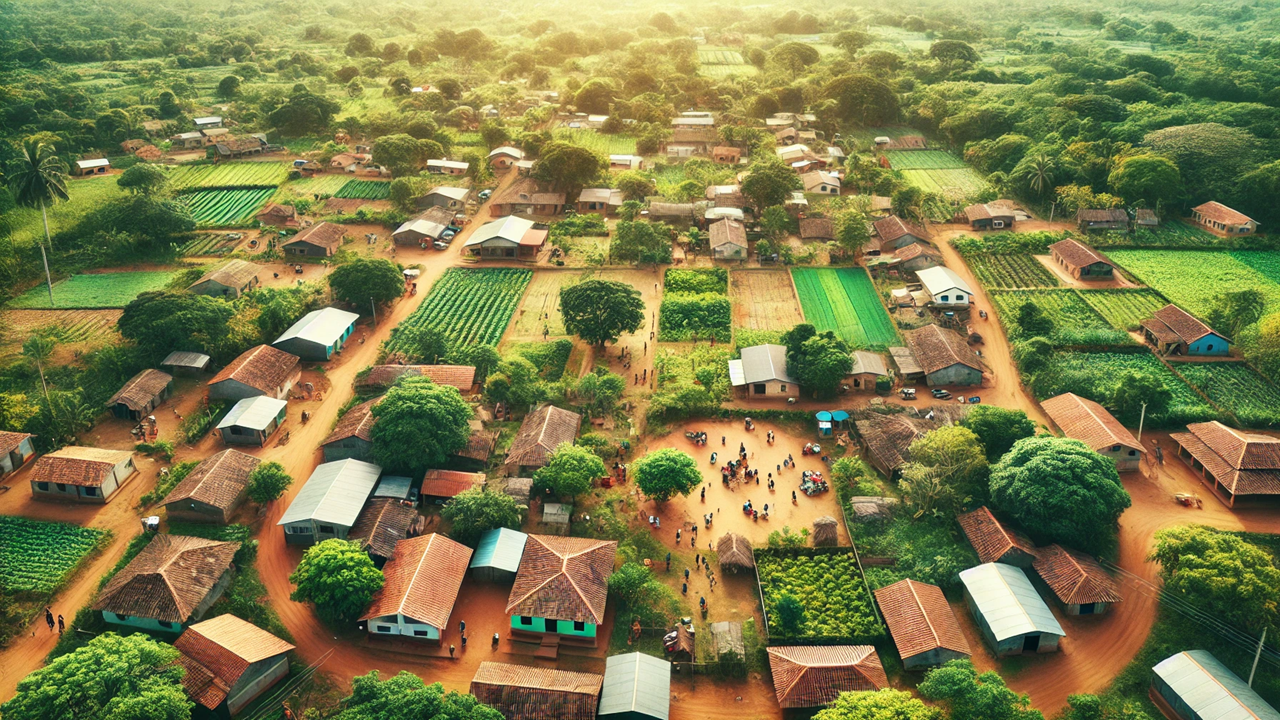Paraguay’s Path to Poverty Reduction: Insights from the World Bank Report
Paraguay’s remarkable poverty reduction journey, highlighted in the World Bank’s latest report, underscores the importance of tackling systemic barriers. Through human capital investments, job creation, fiscal reforms, and climate adaptation, the nation can build a more inclusive and resilient economy.

Paraguay Poverty and Equity Assessment
Strategies to Boost Inclusive Growth and Poverty Reduction, published by the World Bank, presents a detailed analysis of Paraguay’s progress in tackling poverty while outlining the hurdles the nation must overcome to sustain equitable growth. The report paints a picture of progress, challenges, and potential paths forward, emphasizing a multidimensional approach to development.
Substantial Progress, Lingering Challenges
Paraguay has made significant strides in poverty alleviation over the past two decades. From 2003 to 2022, the poverty rate dropped dramatically from 51.4 percent to 24.7 percent, while extreme poverty was halved. However, since 2014, progress has slowed due to economic deceleration, the COVID-19 pandemic, inflation, and climatic shocks such as droughts. Economic growth, a key driver between 2003 and 2013, has lost momentum, underscoring the need for strategic interventions to reinvigorate poverty reduction efforts.
Structural Barriers to Growth
Human Capital Deficits: Paraguay’s education and healthcare systems face challenges, especially in rural and Indigenous communities. Poor performance in international assessments like PISA and high rates of youth disengaged from work or education (NEET) highlight systemic inequities. These deficits perpetuate cycles of poverty and limit future opportunities.
Labor Market Inefficiencies: With 63 percent of the workforce in informal employment, Paraguay’s labor market struggles to provide quality jobs. Gender disparities further complicate the issue, with women disproportionately represented in low-paying sectors. Efforts to transition from agriculture to more productive industries remain insufficient.
Fiscal Limitations: A reliance on indirect taxes, inefficiencies in public spending, and one of the region’s lowest tax revenues (11.2 percent of GDP) constrain Paraguay’s ability to implement redistributive policies effectively.
Climate Vulnerability: Climate shocks, including floods and droughts, disproportionately impact low-income households. Dependence on agriculture exacerbates the vulnerability of rural communities to these events.
Pathways to Inclusive Growth
The report emphasizes a multidimensional strategy to address these barriers, focusing on enhancing human capital, fostering quality employment, reforming fiscal policies, and building climate resilience.
Enhancing Human Capital
Investing in education and healthcare is crucial. Early childhood programs, vocational training, and targeted initiatives for Indigenous communities can address disparities. Healthcare system integration and improved service delivery are equally vital for fostering a productive workforce.
Creating Quality Jobs
Formal job creation through policies supporting MSMEs, foreign investment, and skill development aligned with market demands can transform the labor market. Encouraging rural infrastructure development and diversifying the agricultural sector will generate better employment opportunities.
Strengthening Fiscal Systems
Increasing tax revenues through progressive taxation and reducing inefficiencies in public spending will enhance social investment capacity. Better-targeted subsidies and expanded social programs like Tekoporã can directly support vulnerable populations.
Building Climate Resilience
Adapting to climate challenges is essential. Investments in resilient infrastructure, sustainable water management, and safety nets for farmers can mitigate the adverse effects of climate shocks. Promoting economic diversification will also reduce dependence on climate-sensitive industries.
A Comprehensive Vision
The World Bank’s Paraguay Poverty and Equity Assessment calls for a coordinated, multi-sectoral approach to sustain and accelerate poverty reduction. By addressing systemic barriers and fostering inclusive growth, Paraguay has the potential to achieve a more equitable and prosperous future.
- FIRST PUBLISHED IN:
- Devdiscourse
ALSO READ
World Bank Report: North Macedonia Must Strengthen Fiscal Discipline to Accelerate EU Convergence
Cambodia’s Economic Growth Steady in 2024, Driven by Trade and Tourism Recovery, World Bank Report Says
World Bank Report Highlights Path to Fairer Taxes and Improved Education in Armenia for Sustainable Growth
Libya’s Economy Faces Contraction in 2024 Despite Oil Recovery, World Bank Report Highlights Diversification and Stability Needs
Serbia's Economic Growth and Job Creation Depend on Investments in Climate Resilience: World Bank Report










